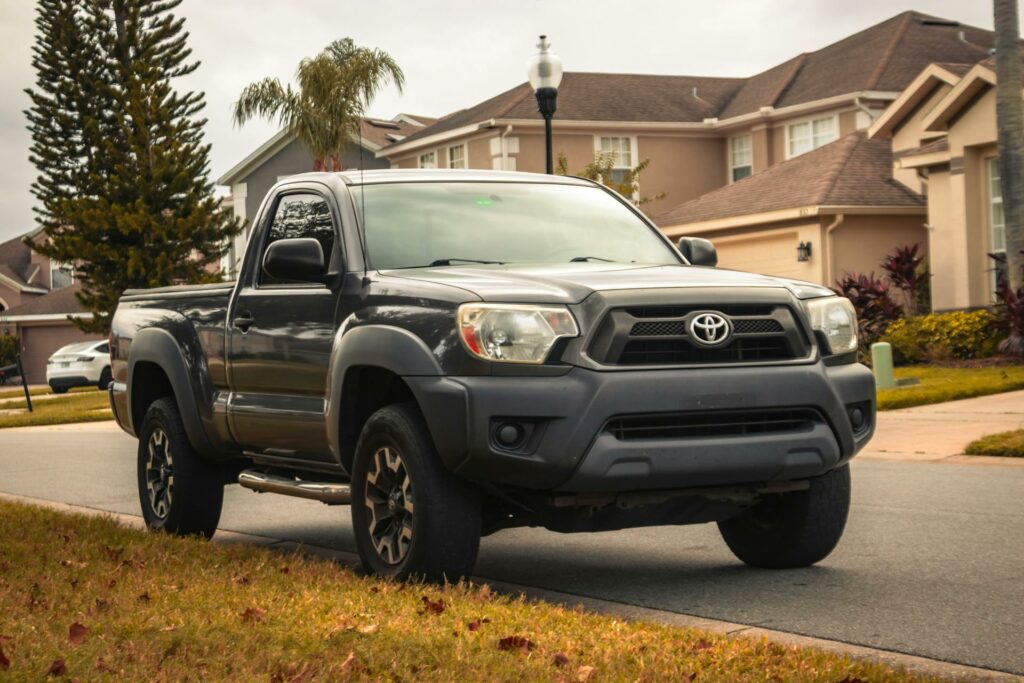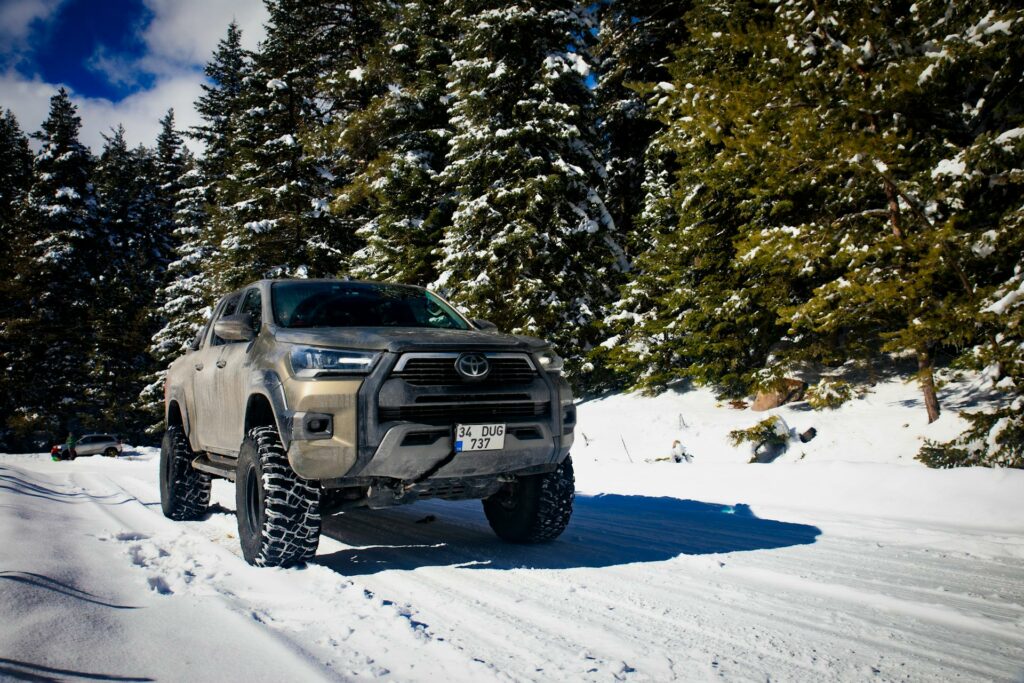In the world of trucks, reliability is paramount. Ford, Toyota, and Chevrolet are often touted as the leading brands in this domain, with models like the Ford F-150 and Toyota Tacoma earning high praise for their robust engines and overall durability. Yet, the question remains: which truck can truly lay claim to being the most reliable? Factors to evaluate extend beyond make and model, encompassing elements such as maintenance, driving habits, and even the quality of parts used. The answer may prove more complex than initially anticipated.
Understanding Truck Reliability
Trustworthiness, a critical attribute when considering truck reliability, forms the bedrock of this discussion. Truck reliability is a multifaceted concept, often evaluated on two primary fronts: engine performance and overall dependability, as discerned from consumer reviews.
Engine performance is a key determinant of reliability. A truck’s engine is its heart, its mechanical lifeline. The engine’s functionality and efficiency directly impact the truck’s ability to perform tasks, from heavy-duty hauling to basic transportation. A truck with a robust, well-performing engine is typically viewed as more reliable than a truck whose engine performance is subpar.
Consumer reviews offer valuable insights into real-world truck reliability. Consumers are the ones who interact with their trucks on a daily basis, subjecting them to various conditions and usage patterns. They provide first-hand accounts of a truck’s reliability or lack thereof, making their reviews an essential part of any reliability assessment.
In essence, understanding truck reliability involves a careful analysis of engine performance and consumer reviews. Both these aspects interact to create a thorough picture of a truck’s trustworthiness, serving as a reliable guide for potential buyers and enthusiasts alike.
Top Factors Influencing Durability
When examining the durability of a truck, several key factors come into play. First and foremost, the material quality plays a significant role. Simply put, higher quality materials contribute to the overall longevity of a truck. This encompasses everything from the quality of the steel used in the truck’s frame, to the robustness of the engine components, and even down to the durability of the interior materials.
Another critical factor is the truck’s design features. An intelligently designed truck should distribute weight evenly, reduce strain on its components, and be equipped with features that protect it from the elements and wear and tear. For instance, a well-designed truck may feature rust-resistant materials or have parts that are easy to replace or repair, thereby increasing its durability.
Furthermore, the integration of technology can also influence durability. For example, advancements in engine technology can lead to improved fuel efficiency and reduced wear on engine components. Similarly, the use of modern materials can lead to lighter, stronger, and more durable trucks.
Noteworthy Full-Size Trucks
Delving into the world of full-size trucks, several models stand out for their proven reliability and impressive features. These models have been meticulously engineered to deliver fuel efficiency without compromising their towing capacity, a demonstration of design innovation and technological advancement.
The Ford F-150, for instance, is a remarkable full-size truck known for its dependability. With its EcoBoost V6 engine, it balances power and fuel efficiency, making it a favorite among truck enthusiasts. The model’s towing capacity is significant, capable of towing heavy loads while maintaining stability and maneuverability.
Another reliable model is the Chevrolet Silverado. With a range of engine options, it caters to diverse needs. Its 5.3L V8 engine offers an impressive blend of power, fuel efficiency, and towing capacity. The Silverado is renowned for its durability, making it a worthwhile investment for those seeking long-term use.
The Ram 1500 also deserves mention. Its mild-hybrid eTorque system enhances fuel efficiency while its robust V8 engine guarantees remarkable towing capacity. Its reliability is well-documented, reinforcing its position among top full-size trucks.
Prominent Mid-Size Trucks
A considerable number of mid-size trucks distinguish themselves, not just by size, but also by their outstanding reliability and custom features tailored to their segment. These trucks, nestled between compact and full-size categories, offer versatility and functionality that meet a wide range of consumer needs.
Mid size comparisons often place emphasis on their reliability, towing capacity, and off-road prowess. The Chevrolet Colorado, for example, has an impressive towing capacity of 7,700 lbs, while the Ford Ranger excels in off-road adventures with its Terrain Management System. The Toyota Tacoma, on the other hand, stands out for its unbeatable durability and longevity, bolstered by consumer reviews.
Consumer reviews often highlight the comfort, state-of-the-art technology, and safety features of these mid-size trucks. The Honda Ridgeline, for instance, has earned accolades for its car-like ride quality, innovative in-bed trunk, and advanced safety features.
The mid-size truck segment offers a myriad of options that cater to a diverse range of preferences, balancing power, technology, and reliability. These trucks prove that size does not always equate to capability, as they continue to offer robust performance in a more compact and efficient package.

Best Heavy-Duty Trucks
Shifting our focus to the domain of heavy-duty trucks, the segment presents a variety of exceptional contenders known for their remarkable strength and endurance. These behemoths of the road are defined by their heavy-duty specifications, boasting high payload capacities, robust towing abilities, and sturdy built quality.
The performance of a heavy-duty truck is of paramount importance, especially when it’s pushed to its limits under extreme conditions. Such trucks should display an impressive blend of power, durability, and utility. The engine is expected to deliver colossal torque outputs for pulling heavy loads, while the drivetrain should be robust enough to withstand the rigors of harsh terrains and heavy payloads.
For instance, the Ford F-250 Super Duty and the Chevrolet Silverado 2500HD are prime examples of heavy-duty trucks that exhibit stellar performance. Both trucks come equipped with powerful engines, sophisticated suspensions, and advanced towing technologies, making them reliable choices for heavy-duty tasks.
Additionally, fuel efficiency and cabin comfort are other critical aspects to evaluate. Despite their rugged exteriors, these trucks offer premium interiors with advanced features, merging practicality with luxury.
In essence, the best heavy-duty trucks excel in performance, durability, and comfort, meeting the demands of the most challenging tasks.
Tips for Maintaining Reliability
Maintaining the reliability of a truck extends beyond the initial purchase and is considerably influenced by regular maintenance, selection of high-quality parts, and the application of proper driving techniques. These three facets collectively form a robust strategy for preserving the truck’s performance and lifespan. This discussion will offer practical advice on these elements to guide owners in securing the optimum reliability of their vehicles.
Regular Truck Maintenance
Your truck’s performance and longevity largely depend on regular maintenance, a vital practice to uphold its reliability. Without a consistent and effective maintenance routine, your truck may suffer from the accelerated wear and tear, decreasing its overall lifespan and reliability.
Oil changes are a critical component of regular truck maintenance. Over time, oil loses its lubricating properties, leading to increased friction and heat, which can severely damage the engine. Regular oil changes not only keep the engine running smoothly but also improve fuel efficiency, thereby enhancing your truck’s reliability.
Tire rotations, another essential part of routine maintenance, guarantee even wear and tear on all four tires, promoting longer tire life. Uneven tire wear can lead to poor handling, reduced fuel efficiency, and increased risk of tire blowouts. Regular tire rotations help maintain peak performance and safety, contributing greatly to the reliability of your truck.
Choosing Quality Parts
As we continue to explore ways to boost the reliability of your truck, another significant factor to take into account is the selection of quality parts. This can profoundly influence the performance, longevity, and overall reliability of your vehicle.
Quality materials play a vital role in the manufacturing of any part you intend to install in your truck. They guarantee the part’s resilience to wear, corrosion, and heat, thereby enhancing its lifespan. Using inferior materials could lead to premature failure, ultimately affecting your truck’s reliability.
Aftermarket parts, while often more affordable, can present a gamble. While some aftermarket parts match or even surpass the quality of original equipment manufacturer (OEM) components, others fall short. It’s important to research before purchasing these parts, considering factors such as the reputation of the manufacturer and reviews from other users.
In the end, choosing quality parts for your truck is not just about immediate savings or aesthetics but about investing in its long-term reliability and performance. It’s a strategic decision that can save you the hassle, time, and costs associated with frequent repairs or replacements.
Proper Driving Techniques
Steering through the complexities of proper driving techniques, we discover an essential element in maintaining the reliability of your truck. These techniques, such as safe braking and load management, are not just about guaranteeing safety but also about preserving your vehicle’s longevity.
Safe braking, a critical aspect of truck driving, involves understanding how to use your brakes efficiently and effectively. It is not just about halting your truck, but also about knowing when to brake gently to reduce wear and tear. It’s a fine balance that requires experience and understanding of your vehicle’s braking mechanism.
Load management, on the other hand, is about analyzing and adjusting the weight your truck carries. Overloading your truck can lead to excessive strain, causing significant damage to your vehicle’s suspension and engine. Consequently, it’s critical to guarantee that the load is evenly distributed across the bed of the truck.
Most Reliable Truck Brands
When it comes to reliability, certain truck brands have consistently outperformed others in various aspects. These brands have been put to the test in various scenarios and have proven their worth through reliable truck reviews and truck brand comparisons, thereby setting a high standard in the industry.
One of the key parameters to gauge the reliability of a truck brand is its durability. Brands that offer trucks with long-lasting parts, minimal maintenance requirements, and high resistance to wear and tear, are generally considered more reliable. Ford and Toyota, for instance, have been commended for their outstanding durability, as reflected in numerous reliable truck reviews.
Moreover, the performance of the truck under various conditions is another critical factor in determining reliability. Certain brands such as Chevrolet and Ram have been noted for their trucks’ superior performance in challenging terrains and harsh weather conditions.
Lastly, the brand’s commitment to customer service and provision for adequate warranties also contributes to their reliability score. Brands that stand behind their products and readily address customer concerns, like GMC and Honda, add an extra layer of trust and reliability.

